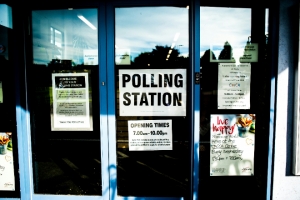Chris Potter
How the UK General Election Could Benefit UK Hotels.
As the UK approaches its next general election, the hospitality sector, particularly hotels, is closely monitoring political pledges that could shape their future. According to sources, the different political parties offer varying levels of support and potential benefits for UK hotels.
Conservative Party: Deregulation and Business-Friendliness
The Conservative Party traditionally promotes policies aimed at reducing business taxes and regulations, creating a more business-friendly environment. This approach can benefit hotels by lowering operational costs and simplifying compliance with regulations. However, the Conservative stance on VAT reduction for the hospitality sector has been less clear, which could limit direct financial relief for hotels.
Moreover, the Conservatives' focus on building a "Global Britain" and enhancing tourism through international partnerships could increase visitor numbers, benefiting hotels across the country. However, stricter immigration policies under Conservative governance might continue to pose challenges for staffing, which remains a critical issue for the hospitality industry post-Brexit.
Labour Party: VAT Reduction and Worker Support
Sources have highlighted Labour’s policies as particularly beneficial for the hospitality sector. Labour's commitment to reducing VAT for hospitality, leisure, and tourism is a significant potential advantage. Lower VAT rates can increase demand, help businesses manage rising costs, and prevent further price increases for consumers.
Labour also proposes more flexible immigration policies, which could help address the severe staffing shortages that hotels face. Their focus on improving labor rights and increasing the minimum wage might improve job attractiveness in hotelsand restaurants, albeit potentially raising operational costs for hotels. Balancing these costs with the anticipated increase in demand due to lower VAT could result in a net positive for the sector.
Liberal Democrats and Other Parties: Balanced Support
The Liberal Democrats often advocate for policies that balance economic growth with social responsibility. Their focus on sustainability and support for small businesses could help hotels adapt to changing consumer preferences and environmental regulations. Their immigration policies are typically more lenient than the Conservatives, which could aid in alleviating staffing shortages.
Smaller parties like the Green Party also emphasize sustainability, which, while potentially increasing compliance costs, aligns with the growing consumer demand for eco-friendly practices. Hotels that invest in green technologies and sustainable practices might benefit from increased patronage and government incentives under these parties.
UKHospitality’s intervention, Advocacy and Key Asks
UKHospitality’s three-point plan for the year includes a strong push for a lower VAT rate, comprehensive reform of business rates, and adjustments to the apprenticeship levy. These measures are designed to provide financial relief and support growth within the sector. The trade body encourages its members to engage with their MPs to advocate for these changes, emphasizing the potential for significant economic contributions and job creation within the hospitality industry if these policies are adopted.
Conclusion
The upcoming UK general election presents a pivotal moment for the hospitality sector. While the Conservative Party offers benefits through deregulation and business-friendly policies, Labour’s pledges on VAT reduction and more flexible immigration rules could provide more direct and immediate benefits for hotels. The Liberal Democrats and smaller parties also offer valuable support, particularly in sustainability and balanced economic policies.
As hotels navigate the post-pandemic recovery, the right mix of policies could significantly enhance their ability to thrive in the coming years.
Celebrating 25 years of service to the UK hospitality industry this year, James Webber Recruitment offer a wide range of solutions in securing permanent employees.
Chiara Mazzei
I have loved this industry since I moved to the UK after graduating in Hospitality Management in Italy. When I first arrived in London, I have worked in high end restaurant operations to then decide to join the dynamic world of hospitality recruitment eight years ago.
Throughout my career, I have demonstrated a keen eye for talent and a deep understanding of the recruitment landscape. My background in luxury hotels as internal recruiter has also equipped me with a refined sense of what it takes to thrive in high-pressure, client-focused environments. This experience has not only sharpened my recruitment acumen but also instilled a strong commitment to excellence and a passion for delivering outstanding service.
As a Senior Recruitment Consultant, I leverage my extensive network and industry knowledge to connect exceptional candidates with the right opportunities. This approach is both strategic and personable, ensuring that each placement is a perfect fit for both the candidate and the client.
Outside of work, I remain engaged with the latest trends in hospitality and love to try new restaurants, as well as being a keen home cook. I also enjoy running, fitness and outdoor activities as well as relaxing with a good book and spend time with my family and friends.
Harry Pettis
My name is Harry Pettis, and I am the Senior Chef Recruitment Consultant at James Webber Recruitment.
Based in South West England, with over a decade of operational kitchen experience, I have had the privilege of working in some of the most prestigious kitchens, including Michelin-starred, Rosette, and other award-winning restaurants. This hands-on experience has given me a deep understanding of hospitality and the unique demands of high-calibre kitchens.
My journey through the culinary ranks has equipped me with a keen eye for talent and a thorough understanding of what it takes to succeed in top-tier kitchens. This background allows me to connect exceptional chefs with leading establishments, ensuring a perfect fit for both parties.
As the Senior Chef Recruitment Consultant, I am passionate about helping chefs find their ideal roles and supporting hotels & restaurants in building outstanding teams. My mission is to ensure the industry continues to thrive with talented and passionate professionals.
Outside of work, I enjoy spending quality time with my family. Whether we’re exploring the beautiful landscapes of the Moor, cooking together at home, spending time down the allotment or simply relaxing at home watching a film or playing games. these moments are invaluable to me.
Louise Robinson
Specialist Hospitality Senior Consultant at James Webber Recruitment Limited
I am an experienced, professional Specialist Recruiter within the Hospitality sector working with key clients within Hospitality, Leisure and Entertainment industries for over 20 years with previous hands-on Hotel & Commercial Operations experience.
Successfully working with Managing Directors, Group HR Managers, Commercial & Finance Directors & Hospitality professionals at all management & supervisory levels to secure their next career step as well as offering consultative support with recruitment & selection requirements.
Representing candidates and securing permanent positions for all Front of House, Sales, Revenue, Food & Beverage, Maintenance, Housekeeping, Finance, HR and Hotel Management professionals within the Hospitality, Leisure and Tourism industry within the Midlands and North of England regions.
My clients appreciate my support in assisting them with their recruitment needs. I endeavour to always understand their criteria to enable me to source candidates that will fit their requirements.
I am totally passionate about what I do and love the Hospitality industry and this always shows with the continual feedback & communication that is received throughout every step of the recruitment process. I take great pride as often being the first port of call for any vacancy especially that tricky appointment that I need to fill.
I live in the Midlands with a pretty good knowledge of the venues and hotels in the Midlands and North regions.
Rob MacDonald
I have lived and breathed hospitality since a very early age – From peeling potatoes, I progressed and developed through the management training programmes of leading branded operators, before moving into multi-site operations, opening new restaurants and bars up and down the country.
As a Recruitment Operations Manager at James Webber Recruitment (JWR), I leverage my operational experience in the hospitality and leisure industry to provide sector-leading recruitment solutions for a diverse range of clients nationwide. I have a proven track record of building great teams, driving sales, delivering results, and achieving goals for both corporate and independent businesses.
At JWR, I work with a dedicated and professional team of consultants who recruit for all levels up to senior operations, head office functions, and senior chef roles.
I am passionate about connecting great people with exciting and business-driven roles and helping the hospitality industry thrive in challenging times.
Born and raised in the South West, Father to two boys, I’m happiest when near the sea.
I enjoy Boxing, F1 and football and I also support the trust of Taunton Youth FC with social media, marketing, sponsorship, and recruitment whilst my son plays for them in the Junior Premier League
If you are looking for a new opportunity or a talent partner, please get in touch to discuss in more detail.
Parmjit Kudhail
Originally worked for a number of branded retail management companies as a General Manager for a number of years managing turnovers of more than 15 million per year & 100+ staff. Had a real passion for recruitment & decided to diversify my career in hospitality recruitment in which I have been doing for the past 15 years. Built up my clientele and working with some of the UK’s very prestigious clients from lifestyle restaurants clubs and bars at senior management levels both front of house & back of house to upscale independent operators.
Throughout my extensive career in recruitment I have been honoured to be awarded a number of awards including being one of the top billers in my previous company & present and attended a number of incentive trips abroad to Tenerife, Greece and Las Vegas and attended a number of MD luncheon clubs. Set up the London office in James Webber Recruitment and really dedicated my time and focus to be the very best in what I do & making James Webber Recruitment the best in the industry.
Based in the ever green Essex areas, I am a keen snooker player and also like to unwind by spending my time going to prestigious holiday destinations and spending my hard earned cash only to come back and make more money ready for my next venture.
Antoine Dayeh
Having work in recruitment for over 25 years, specialising in securing top talent from HOD to senior regional level within Hospitality, I have had the privilege of working with and supporting some of the industry’s leading organisations, having had previous operations exposure within hotels, members clubs and Michelin stared restaurants, I am ideally positioned to support a wide variety of organisations.
Professionally qualified within Recruitment and HR, I am proud to support an exceptional team here at James Webber Recruitment, where we have worked hard to recruit, train, mentor and motivate some of the industries most talented recruiters, whilst maintaining a focus on operational growth within the company.
Possessing a genuine passionate for what I do, and a love of the Hospitality industry has enabled me to provide clear, concise and truly consultative support over the years.
Naturally competitive, I am a keen golfer and angler, having represented my club, county and country in both domestic and international tournaments.
Based South Coast, I have developed a strong commercial awareness of both the UK and international markets.
John Nee
My passion for hospitality is born out of a career within hotels working extensively across Forte Brands, of Grand, Crest and Posthouse before joining the Pelican Group. From early days of working alongside of college, I understood immediately that people are the core to our industry and this is fundamental in my decision to dedicate my career to hospitality recruitment. 25 year later and having worked for several agencies, opening new offices and building successful teams, my thoughts around hospitality have not changed.
After seventeen years with the company in many guises and now as Commercial Director, I am proud to have seen James Webber Recruitment flourish, empowering its team to forge connections with its clients in a “Word is my bond,” manner.
Recruiting senior appointments across hospitality in Operations, Commercial and Finance and supporting the company at large, keeps me busy as we look forward to celebrate our 25 anniversary.
Born and bred in the Potteries with a penchant for Bass, Oatcakes and Stoke City, I have travelled extensively, worked across the UK and now call Teignmouth Devon home.
James Webber
I'm James, the Managing Director of JWR which I have been running for the past 25 years. My journey in the hospitality industry began with a deep passion for connecting talented individuals with their dream jobs and helping businesses find the right people to elevate their services. Over the years, I have dedicated myself to understanding the unique needs of both candidates and employers, ensuring that each placement is a perfect fit.
With a quarter-century of experience, I have seen the industry evolve, we have adapted strategies to meet the changing demands of the market. Commitment to excellence and integrity has earned JWR a reputation for reliability and success. I am proud to lead a first class team of dedicated professionals who share a united vision and passion for making a difference in the hospitality sector.
Outside of work, I am the proud father of six children, my wife Jo and I are kept very busy with the seemingly unlimited activities of an energetic family life.
Balancing a demanding job with a rich family life has been a rewarding challenge, and I am immensely proud of the successes we have achieved both personally and professionally. As I continue with my team to lead JWR forward, I remain dedicated to fostering meaningful connections within the hospitality industry and creating a legacy that my family and I can be proud of.
Leading UK hospitality organisations have united to launch the Hospitality Rising campaign to highlight the current industry recruitment crisis.
The biggest-ever national recruitment campaign, it is backed by more than 300 businesses across the UK. It aims to change the perception of working in hospitality for a new generation of young people.
Organisers believe showcasing the opportunities of a career in hospitality will attract new recruits to work in hotels, restaurants, pubs and bars to alleviate current staff shortages.
The British Institute of Innkeeping, the British Beer and Pub Association, UK Hospitality, the Institute of Hospitality and the charity Springboard are among the organisations spearheading the campaign.
They have written a joint letter to Mel Stride, the Secretary of State for Work and Pensions, outlining the steps they are taking to alleviate the staffing crisis and asking for more government support.
Contract catering suffers shortfall
Hospitality businesses have faced challenges with recruitment throughout 2022. The post-Covid climate has been cited as one reason, as many staff who left hospitality jobs during the lockdowns haven't returned. Brexit has also been blamed for creating a shortage of European workers.
In particular, the contract catering sector has been struggling with chef recruitment for nearly 12 months. Now, as the busiest time of year approaches, they fear the shortfall could impact Christmas catering plans. Many firms say they are also anticipating front-of-house staff shortages too.
Research carried out as part of the Hospitality Rising campaign claims there has been a rise in the number of personnel leaving hospitality. In addition, existing vacancies aren't being filled.
Employees feeling the strain
As a result, 79% of existing employees say they are feeling the pressure of being short-staffed and fear it is affecting the customer experience. In addition, 65% of business owners say it is having a negative impact on sales and turnover.
As a result, some venues have reported they are cutting down on the number of private events over the festive period, such as Christmas parties, because they simply don't have enough staff.
The founder of Hospitality Rising, Mark McCulloch, said the UK needed 'bold and creative ways' to solve the hospitality recruitment crisis. In the first three weeks of the campaign, around 17,000 people expressed an interest in hospitality jobs via the campaign's website.
Now they are urging more businesses to get on board and need companies to pledge financial support to ensure Christmas isn't impacted by the shortages.
Specialist hospitality recruitment
Employers who are struggling to attract the right talent are urged to use the services of a specialist hospitality recruitment company.
Finding top talent is a challenge in normal times, so during a time of staff shortages, there are more companies trying to attract fewer people.
A recruiter with knowledge of the market is more likely to be able to provide the best candidates and employees. They will have recruited candidates with a knowledge of the industry, rather than people who have been simply trawling the internet looking for any job.
In order to kickstart hospitality recovery after the challenges of Brexit, the pandemic and the current threat of a recession, attracting top talent to your business is a must.











